
Owner & Attorney - Atlanta Personal Injury Law Firm
This article has been written and reviewed for legal accuracy and clarity by the team of writers and legal experts at Atlanta Personal Injury Law Firm and is as accurate as possible. This content should not be taken as legal advice from an attorney. If you would like to learn more about our owner and experienced Georgia personal injury lawyer, Nathan Whittenburg, you can do so here.
Atlanta Personal Injury Law Firm does everything possible to make sure the information in this article is up to date and accurate. If you need specific legal advice about your case, contact us. This article should not be taken as advice from an attorney.
An Atlanta surgical error lawyer from First Class – The Atlanta Personal Injury Law Firm can help patients and families recover when a preventable mistake during surgery leads to serious harm.
Surgical errors are among the most devastating forms of medical negligence, often leaving victims with lasting pain, additional surgeries, or permanent disability.
With the support of an experienced attorney, victims can hold negligent medical professionals accountable and pursue the compensation needed to rebuild their lives.
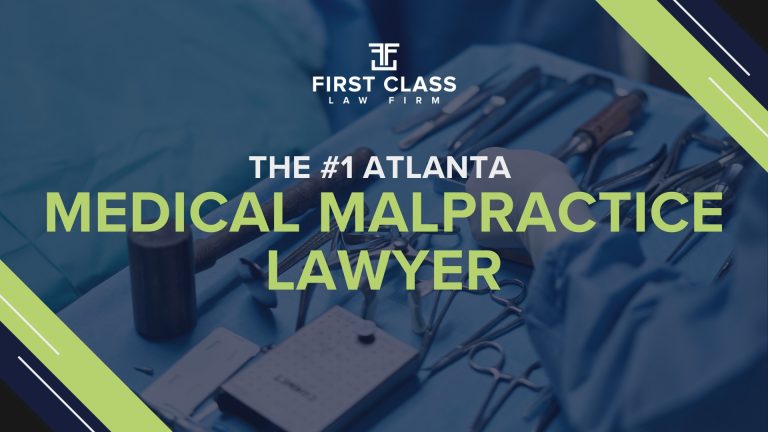
In medical malpractice cases involving surgeries, the consequences can be devastating when a surgical team fails to follow proper protocols or when human error intervenes.
Even minor lapses in the operating room (such as misuse of surgical tools or a lapse in patient monitoring) can lead to severe harm or even death.
When medical professionals operate on a patient’s body, they assume a heightened duty to prevent surgical errors and protect the patient from serious harm and severe injuries.
Unfortunately, common medical errors in surgical settings still occur and can transform a routine procedure into a life-altering event.
These mistakes may disrupt the patient’s daily life, lead to long-term disability, or require extensive additional treatment.
The key to holding negligent providers accountable lies in establishing that the surgical team breached the accepted standard of care and that the patient suffered tangible harm as a result.
If you or a loved one experienced an adverse outcome in the operating room, it may not simply be “bad luck”.
It could signal actionable medical malpractice.
Contacting experienced counsel early is essential to identify if the error stemmed from protocol failures, equipment misuse, or other lapses by medical professionals.
If you or a loved one suffered serious harm or severe injuries because a surgical team or medical professional failed to follow proper protocols in the operating room, you may be entitled to pursue a medical malpractice case for the losses that changed your daily life.
Contact First Class – The Atlanta Personal Injury Law Firm today for a free consultation.
Use the chat feature on this page to get in touch with our law firm.
Under Georgia’s medical malpractice law, a surgical error occurs when healthcare providers deviate from accepted standards during a specific operation and that deviation causes harm to the patient.
If a surgeon performing a procedure on a patient’s body makes a preventable mistake (such as operating on the wrong site, leaving a surgical tool behind, or failing to monitor vital signs in the operating room) that error may qualify as medical malpractice.
Many surgeries are complex, and even experienced teams can face adverse events, but the key factor is whether the surgical team engaged in a preventable mistake rather than a known risk of the procedure.
When a medical professional’s actions fall below what similarly situated professionals would do under comparable circumstances and the patient suffers serious harm or even death, the legal framework allows for accountability.
The term “surgical error” encompasses wrong-site surgery, retained instruments, anesthesia-related failures, nerve or organ damage, and other avoidable events in the course of treatment.
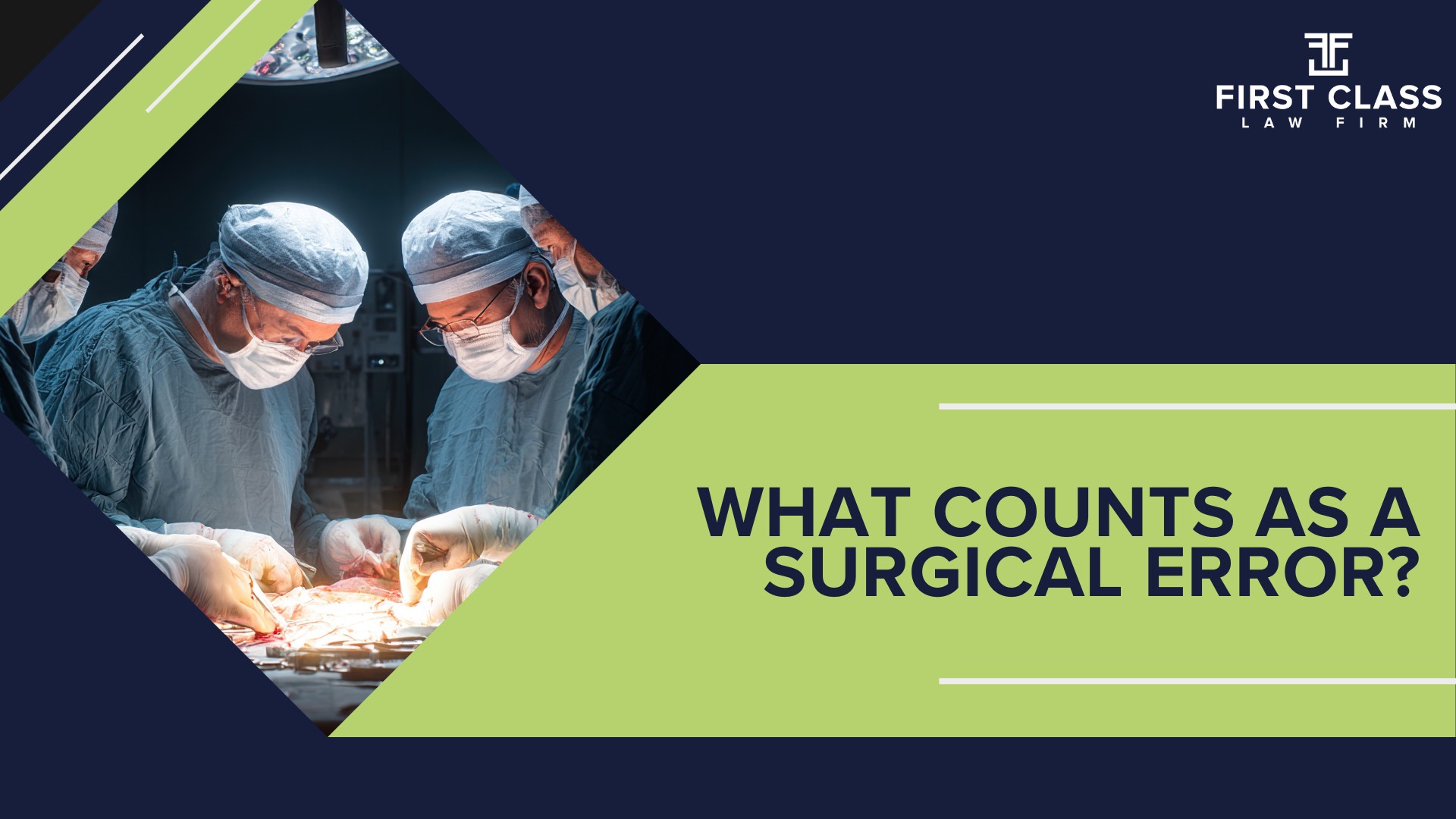
To succeed in a Georgia surgical error claim, the plaintiff must show that the surgical team’s conduct breached the standard of care, that the breach occurred during the operation, and that the harm caused was a direct result of that breach.
Because surgical errors often involve multiple healthcare providers, from the surgeon to the anesthesiologist to the nursing staff, establishing who is liable requires detailed investigation of the entire operating room sequence.
If you or a loved one experienced unexpected severe injuries or a catastrophic outcome following surgery, you should consult legal counsel to determine whether a surgical error under Georgia’s medical malpractice law may give rise to a claim.
Surgical patients place immense trust in their medical care teams, yet mistakes in the operating room continue to cause serious and preventable harm.
Some of the most common surgical errors happen when the surgical staff fails to communicate clearly, misidentifies a patient, or overlooks key details about an underlying medical condition.
Errors such as operating on the wrong body part, performing the wrong procedure, or leaving foreign objects inside a patient’s body can lead to devastating outcomes.
Even routine surgeries can result in nerve damage, anesthesia errors like administering too little anesthesia, or infections caused by retained surgical instruments and contaminated equipment.
Faulty equipment, poor communication, and lack of attention to a patient’s vital signs are often the root causes of these preventable medical mistakes.
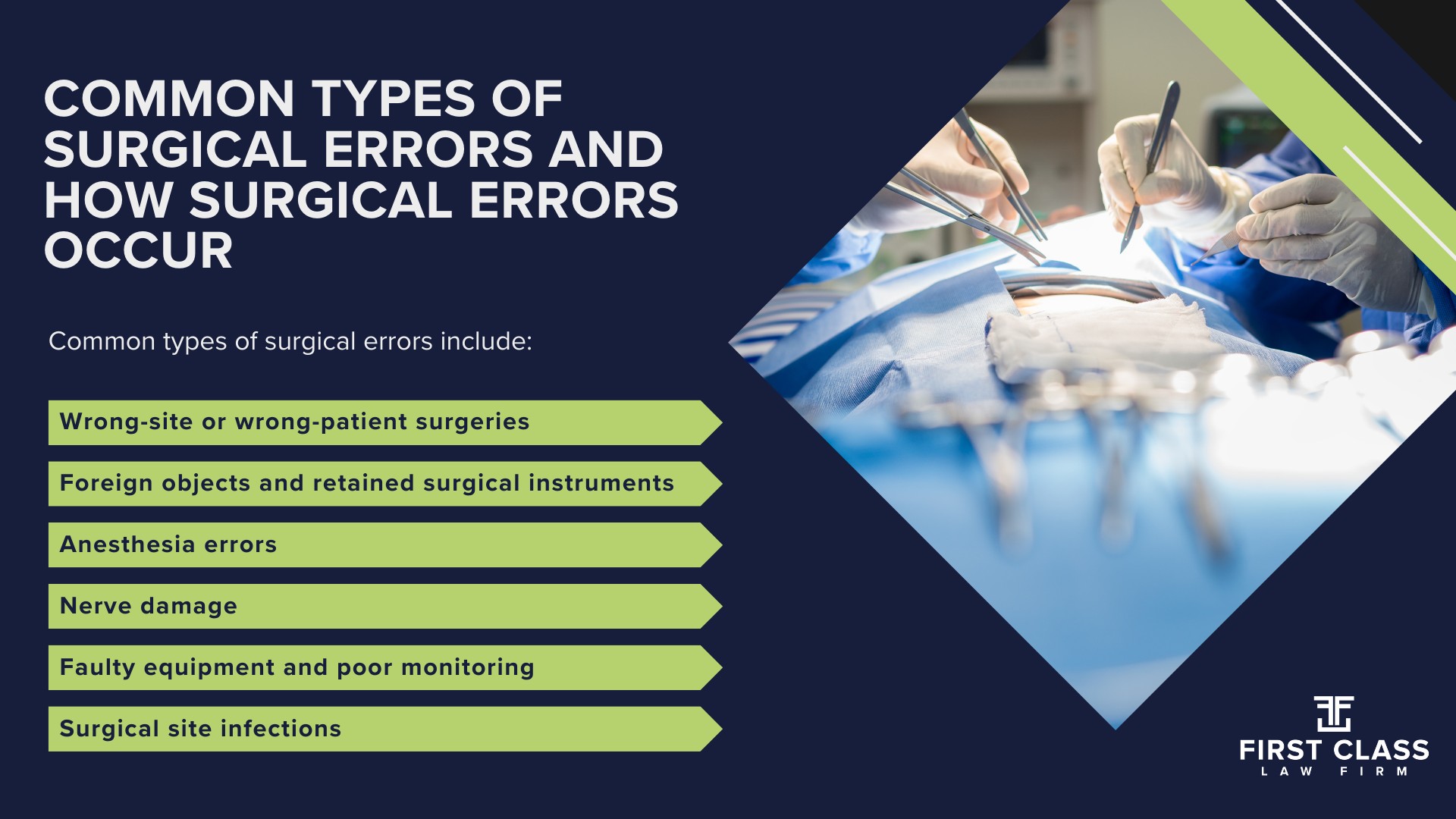
Common types of surgical errors include:
Each of these errors stems from a breakdown in the standard of care, and every surgical mistake represents a failure to protect the patient’s safety during one of the most critical moments of medical treatment.
Under Georgia law, every medical practitioner who undertakes treatment (or a surgeon operates or assists in a surgical process) owes the patient a duty to perform with a “reasonable degree of care and skill.”
In the context of surgery, that means the surgical team and other medical professionals must conduct the procedure, monitor the patient’s vital signs, handle equipment appropriately, and manage post‐operative care according to how similarly trained professionals would act under like circumstances.
When a surgeon performs an operation, the inherent risks of the surgery must be disclosed (commonly through a consent form) but those inherent risks do not excuse negligence when protocols are ignored or the standard of care is breached.
To prove negligence in a surgical error claim, the plaintiff must show that the healthcare provider (or the medical staff involved in performing surgery) deviated from the accepted surgical standard of care and that this deviation proximately caused the patient’s harm.
The fact that an adverse event occurred during or after surgery does not by itself establish a claim; the plaintiff must distinguish a preventable mistake from a known risk or complication of the procedure.
Expert testimony from a qualified peer in the same specialty is typically required in Georgia to define the applicable standard of care and to show how the defendant’s conduct fell short of that standard.
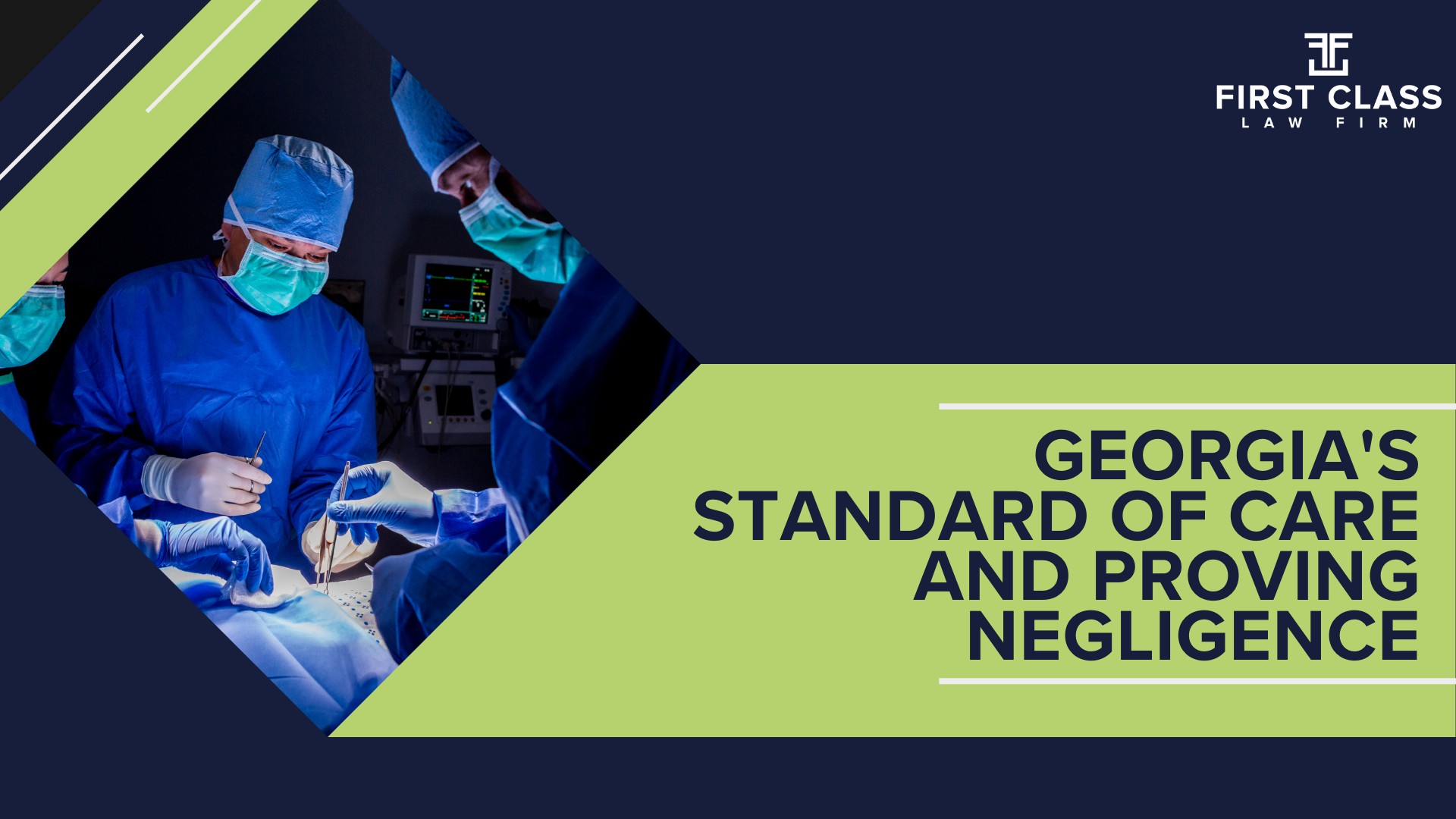
In sum, under Georgia’s medical malpractice law surgical claims involving errors by a surgical team or other medical professionals demand clear proof that the standard of care was breached and that this breach resulted in severe harm (or worse) to the patient.
Prompt investigation, detailed review of consent forms, operative reports, and surgical process records is essential to establish whether a valid case exists.
In Georgia, strict deadlines apply to all surgical error and medical malpractice claims.
The statute of limitations for medical malpractice in Georgia generally gives injured patients two years to file a lawsuit from the date the injury or death occurred.
However, several specific rules and exceptions can affect when this time period begins or ends.
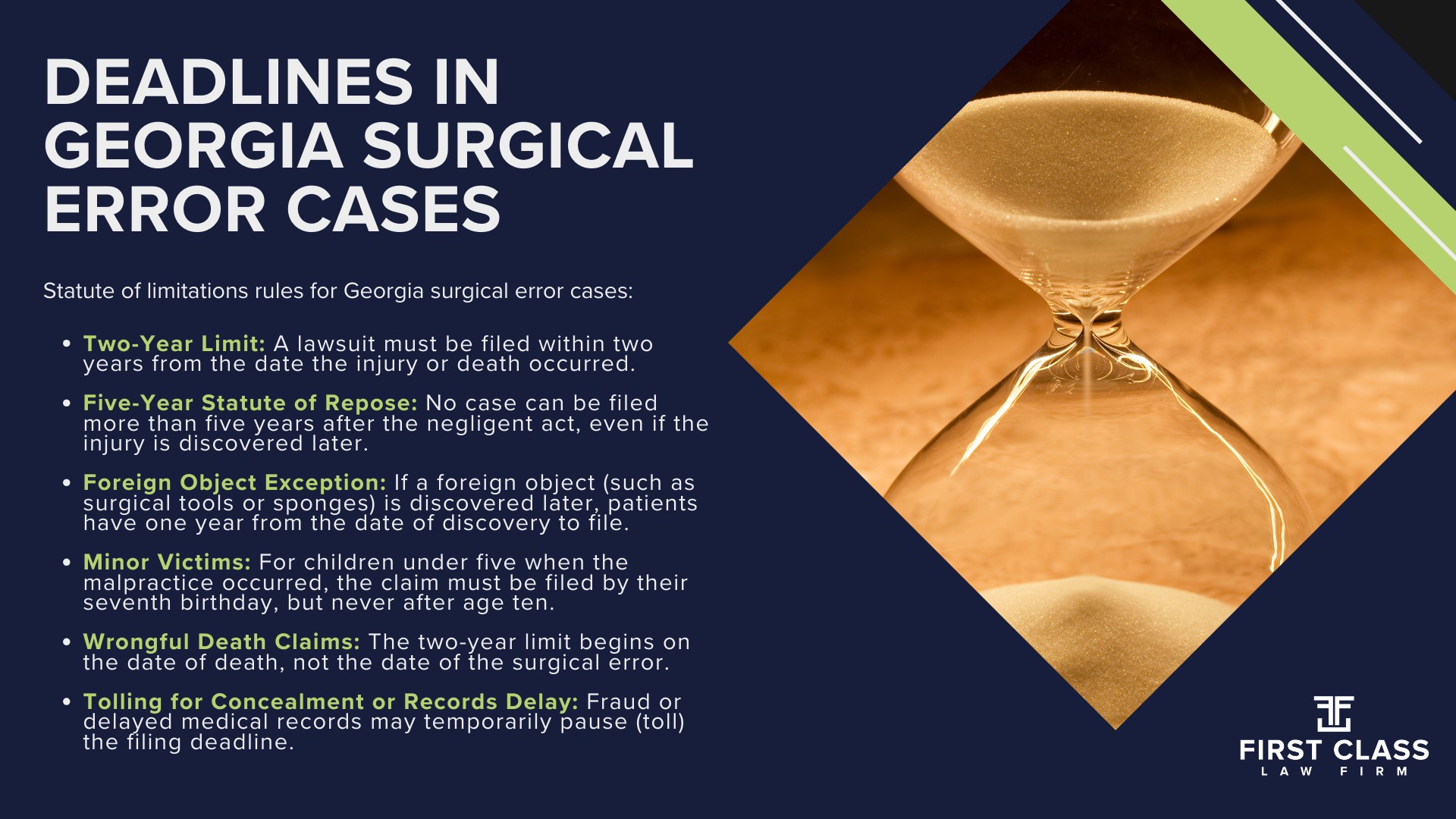
Statute of limitations rules for Georgia surgical error cases:
These deadlines are enforced strictly under Georgia law, making it critical for patients and families to take timely action after a surgical injury.
An affidavit of merit is a mandatory legal document required to file a medical malpractice lawsuit in Georgia.
It must be signed by a qualified medical professional who practices or has practiced in the same specialty as the defendant.
The affidavit explains that the expert has reviewed the relevant facts and believes the medical practitioner or surgical team failed to meet the accepted standard of care.
Without this affidavit, the court will likely dismiss the case before it begins.

Georgia law under O.C.G.A. § 9-11-9.1 requires the affidavit to specifically identify at least one negligent act or omission that occurred during the medical treatment or surgical process.
If the attorney is hired within 90 days of the statute of limitations expiring, the court may grant a 45-day grace period to file the affidavit after the lawsuit begins.
This safeguard ensures that only legitimate medical malpractice claims move forward and that plaintiffs can prove negligence through the opinion of other qualified medical professionals.
Determining whether you have a surgical error lawsuit depends on how the mistake occurred and the harm it caused.
When a patient experiences chronic pain, emotional pain, or requires additional surgery because of a preventable mistake, legal action may be appropriate.
Surgical errors often result from breakdowns within the healthcare system, such as poor communication, inadequate supervision, or ignored safety protocols.
Some of the most devastating cases involve wrong limb operations, anesthesia errors, or brain damage caused by oxygen deprivation during surgery.
These incidents go beyond accepted surgical risks and indicate negligence by the surgical team or other responsible medical professionals.
Patients who suffer lasting physical or emotional harm due to such preventable errors may have grounds to pursue compensation through a medical malpractice claim.
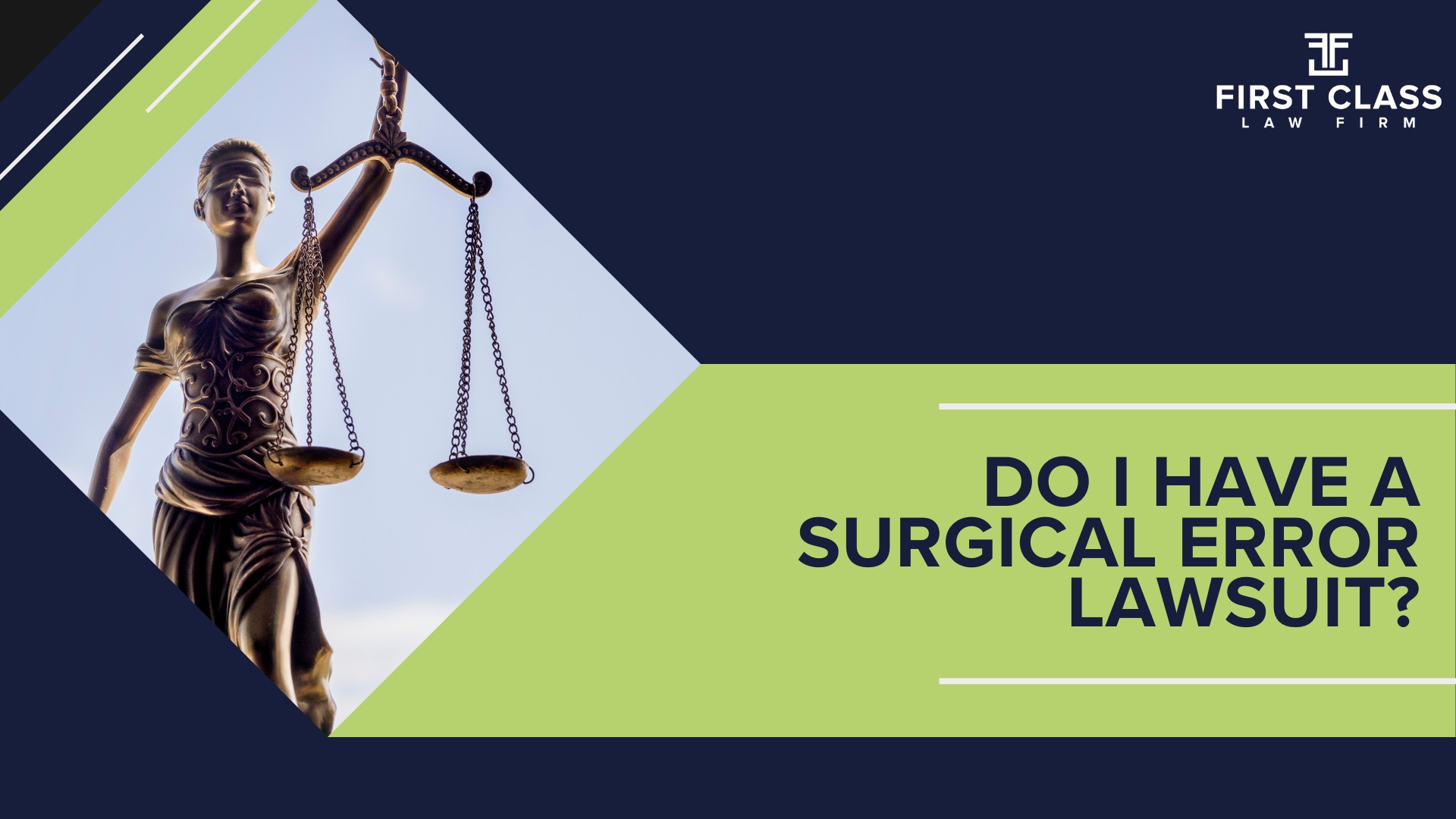
Evidence such as operative notes, medical records, and expert testimony can help establish whether the standard of care was violated.
Speaking with an experienced surgical error lawyer can help you understand your rights, identify responsible parties, and determine whether your case meets Georgia’s legal requirements for a malpractice lawsuit.
Building a strong surgical error case requires gathering detailed and verifiable evidence that shows how the medical provider failed to meet the accepted standard of care.
A medical malpractice attorney will review your medical records, hospital reports, and witness statements to determine how the surgical error occurred and who is legally responsible.
This process often involves consulting medical experts who can identify deviations from proper surgical protocols and link those errors to your injuries.
The quality and depth of evidence are often what determine the strength of a medical malpractice claim.
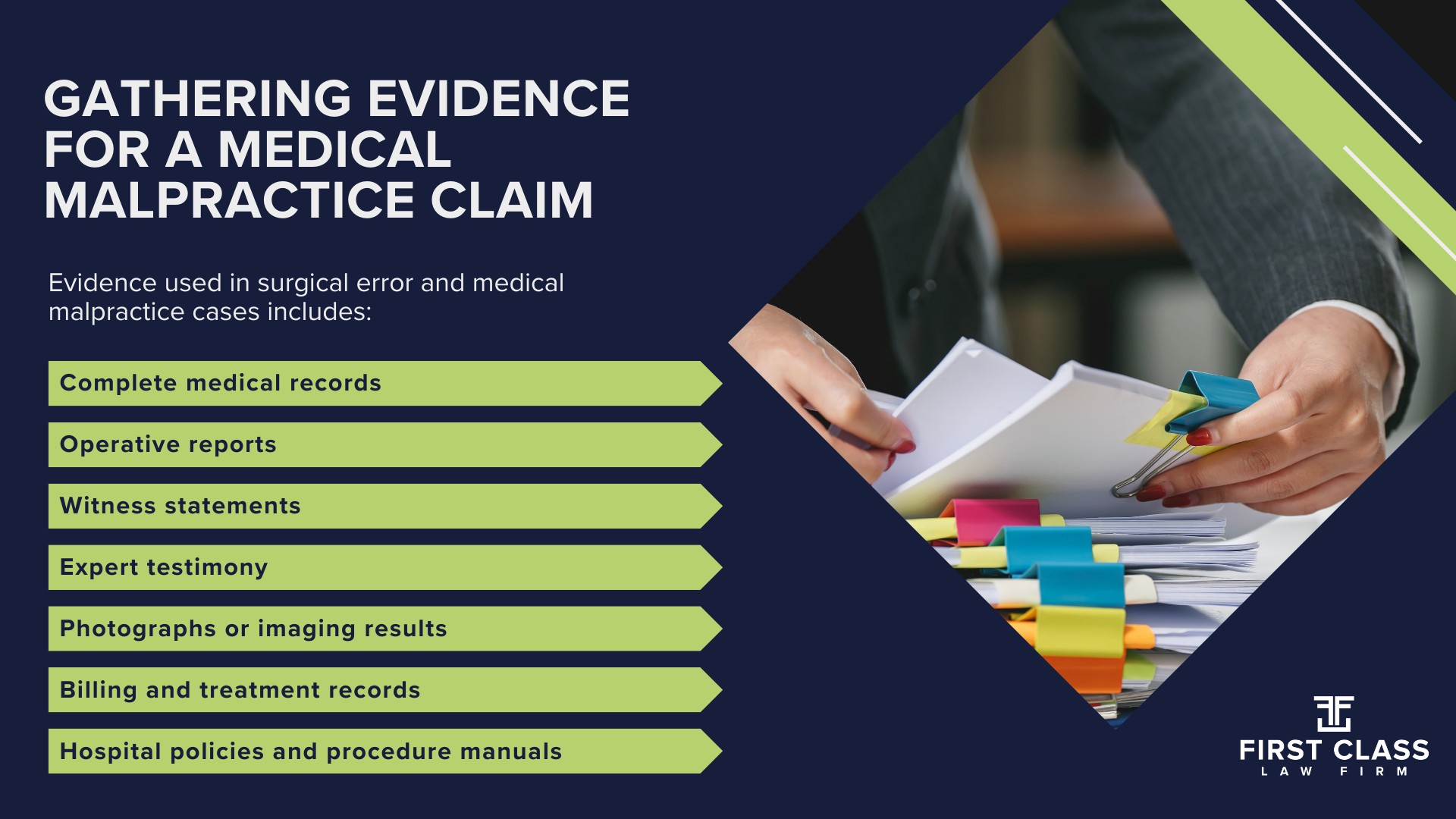
Evidence used in surgical error and medical malpractice cases includes:
A medical malpractice attorney uses this evidence to demonstrate negligence and build a compelling argument for the compensation you deserve.
When a surgical error occurs, the physical, emotional, and financial consequences can be devastating for the patient and their family.
Georgia law allows victims to pursue compensation for both economic and non-economic losses resulting from negligent medical care.
These damages reflect the true impact of the harm, covering everything from medical costs and lost wages to emotional suffering and permanent disability.
The amount awarded depends on the severity of the injury, the recovery process, and the long-term effects on the patient’s daily life
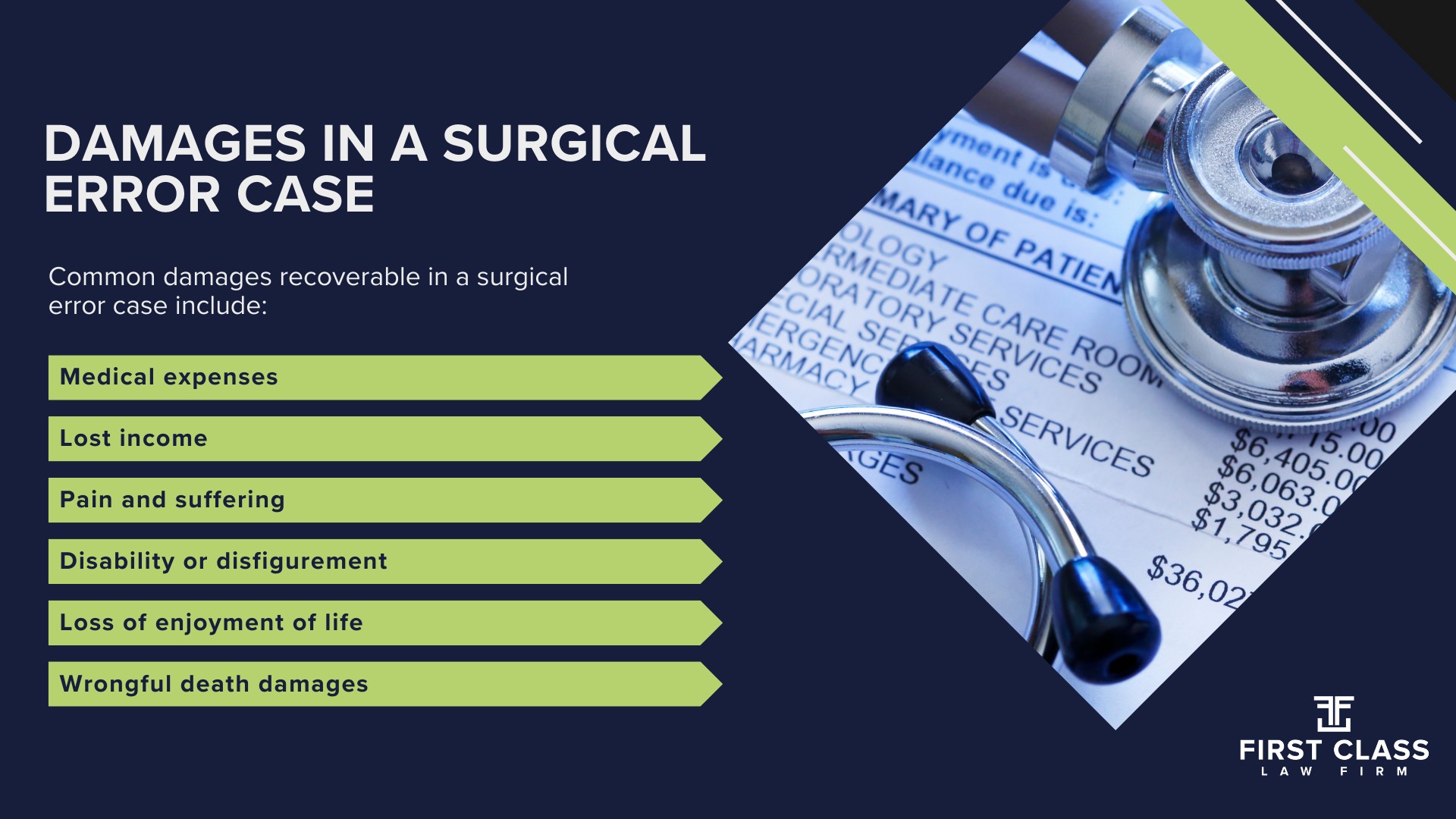
Common damages recoverable in a surgical error case include:
These damages aim to restore the patient, as much as possible, to the position they were in before the surgical error occurred.
Surgical errors can change every part of a person’s life, from their health and mobility to their emotional and financial well-being.
When mistakes happen because medical professionals fail to follow proper protocols, patients deserve accountability and fair compensation.
An experienced surgical error lawyer can investigate what went wrong, gather expert evidence, and hold negligent healthcare providers responsible under Georgia law.
Acting quickly is essential, as strict filing deadlines apply to all medical malpractice cases in the state.
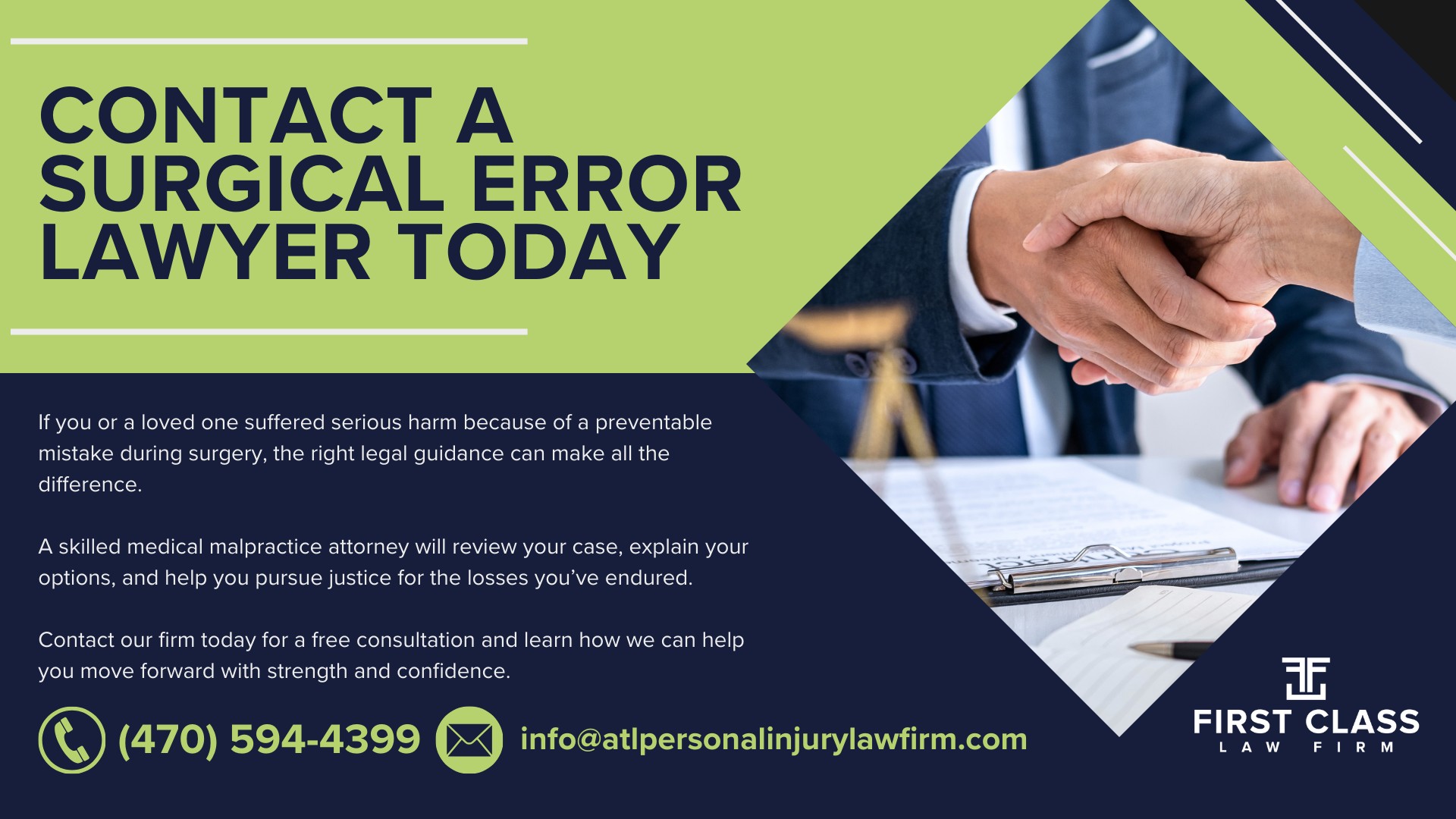
If you or a loved one suffered serious harm because of a preventable mistake during surgery, the right legal guidance can make all the difference.
A skilled medical malpractice attorney will review your case, explain your options, and help you pursue justice for the losses you’ve endured.
Contact our firm today for a free consultation and learn how we can help you move forward with strength and confidence.
The most common surgical errors happen when medical professionals fail to follow established safety procedures before, during, or after a procedure.
In some cases, the surgeon performs an entirely different operation than the one intended, leading to devastating results.
These mistakes are often preventable and stem from miscommunication, fatigue, or a lack of proper oversight in the operating room.
Each error can leave the patient with lasting physical, emotional, and financial consequences.
Examples of the most common surgical errors include:
These errors reflect serious lapses in patient safety and may give rise to a medical malpractice claim when negligence can be proven.
Research shows that most surgical errors stem from preventable issues within hospital systems and team communication.
Communication failures among surgeons, nurses, and anesthesiologists are one of the most frequently cited causes, often leading to confusion about the surgical site, patient identity, or procedure details.
According to a World Health Organization systematic review, many surgical mistakes arise from inadequate checklists, poor team coordination, and lack of standardized safety practices, all of which pose serious public health concerns.
Human error, time pressure, and fatigue can further increase the likelihood of mistakes in the operating room.
Addressing these problems requires consistent training, clear protocols, and a culture of accountability within surgical teams.
Leading causes of surgical errors include:
Together, these factors contribute to preventable surgical injuries that can cause long-term harm to patients and erode trust in the healthcare system.
A person qualifies to file a surgical error lawsuit if they suffered measurable harm as a result of a preventable mistake made during surgery.
This includes patients who experienced physical injuries, emotional trauma, or financial losses because medical professionals failed to follow the accepted standard of care.
In Georgia, the injured patient (or in cases of death, the surviving family members) may bring a claim against the responsible healthcare providers or facility.
To qualify, the plaintiff must show that the surgeon or medical staff acted negligently and that this negligence directly caused the injury or worsened the patient’s condition.
Evidence such as operative reports, expert testimony, and medical records is required to prove that a breach occurred during the surgical process.
Consulting a qualified surgical error lawyer can help determine eligibility and ensure the lawsuit meets Georgia’s strict legal and procedural requirements.
Surgical errors can lead to a wide range of injuries, from temporary complications to life-altering or fatal outcomes.
When a surgeon operates carelessly or the medical team fails to follow proper protocols, a patient’s health and quality of life can be permanently affected.
Some injuries are immediately apparent, while others develop slowly as infections or internal damage worsen over time.
In the most severe cases, these mistakes can cause irreversible disability or death.
Each type of injury reflects how a preventable error in the operating room can devastate both the patient and their family.
Common injuries caused by surgical errors include:

Owner & Attorney - Atlanta Personal Injury Law Firm
Our firm specializes in personal injury cases across the state of Georgia, working on a contingency fee basis to ensure the best possible service for each client.
Click below to get a free, instant case evaluation and find out if you qualify for legal action immediately.
Would you like our help?
Atlanta Personal Injury Law Firm specializes in personal injury cases across Georgia, including motor vehicle accidents, premises liability, catastrophic injuries, and wrongful death claims. Our experienced Georgia injury attorney works on a contingency fee basis, ensuring you only pay legal fees once we secure your settlement or verdict.
Contact our experienced legal team by phone or visit our website for a instant case evaluation. Trust Atlanta Personal Injury Law Firm for dedicated legal representation in Georgia.
Our firm specializes in personal injury cases across the state of Georgia, working on a contingency fee basis to ensure the best possible service for each client.
Click below to get a free, instant case evaluation and find out if you qualify for legal action immediately.
Would you like our help?
Disclaimer: “Don’t Pay Unless You Win” and similar language refers only to fees charged by the attorney. Court costs and other additional expenses of legal action usually must be paid by the client. Contingent fees are not permitted in all types of cases. This website is an advertisement. Nothing is meant to be taken as legal advice or to give the impression that an attorney-client relationship has been created. Please speak with a legal professional.